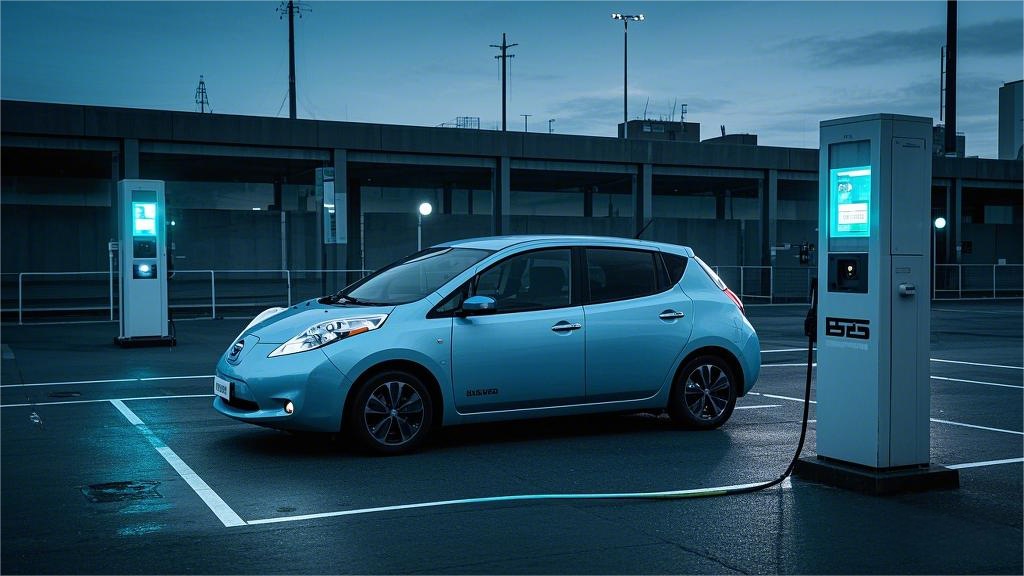DC Charging: Minute vs kWh Pricing – What’s More Cost-Effective?
Introduction
As electric vehicles (EVs) continue to grow in popularity, DC fast charging has become an essential part of the EV ecosystem. For drivers who frequently rely on public charging networks, understanding pricing structures can make a significant difference in managing costs. This guide explores the two primary pricing models for DC fast charging—per-minute and per-kWh—to help you determine which is more cost-effective.
Overview of DC Charging Pricing Models
For readers considering charging at home, explore Tayniu’s Home EV Charging solutions to simplify residential charging setups.
Per-Minute Pricing
How It Works: Charges are based on the time spent connected to the charger, regardless of the energy delivered.
Common Scenarios: Frequently used at high-power charging stations where speed is prioritized.
Advantages: Ideal for EVs with fast charging capabilities; encourages efficient use of chargers.
Disadvantages: Penalizes EVs with slower charging rates or those nearing a full battery.
Per-kWh Pricing
How It Works: Charges are based on the actual energy delivered to the EV.
Common Scenarios: Found in regions with regulations favoring energy-based pricing or at lower-power stations.
Advantages: Transparent and fair; directly tied to energy usage.
Disadvantages: It may not incentivize fast charger turnover, potentially leading to longer wait times.
Key Factors Influencing Cost-Effectiveness
Charging Speed
EVs with higher power intake benefit more from per-minute pricing at high-speed chargers. Conversely, slower-charging EVs may find per-kWh pricing more economical.
Battery State of Charge (SoC)
Charging speeds decrease as the battery’s SoC increases, making per-minute pricing less favorable for topping off your battery.
Regional Regulations and Pricing Structures
Some regions mandate per-kWh pricing to ensure fairness, while others allow per-minute pricing to optimize station turnover. Understanding local rules can help you plan your charging strategy.
Pros and Cons of Each Model
| Aspect | Per-Minute Pricing | Per-kWh Pricing |
|---|---|---|
|
Fairness |
Can penalize slower-charging EVs |
Reflects actual energy consumed |
|
Cost Predictability |
Less predictable; depends on charging speed |
Easier to estimate based on energy usage |
|
Efficiency |
Encourages quick charger turnover |
May lead to extended charging sessions |
|
Suitability |
Best for fast-charging EVs |
Ideal for all charging speeds |
Real-World Scenarios and Case Studies
Considering a permanent setup at home? Tayniu’s Wallbox solutions offer efficient and reliable fixed charging installations.
Scenario 1: High-power charger with per-minute pricing
A Tesla Model 3 charges at 150 kW. For a 15-minute session, the cost is $0.50/min, totaling $7.50. This delivers approximately 37.5 kWh, translating to $0.20/kWh.
Scenario 2: Lower-power charger with per-kWh pricing
A Nissan Leaf charges at 50 kW. For a session delivering 20 kWh, the cost is $0.30/kWh, totaling $6.00. This is more economical than a time-based model for slower chargers.
Scenario 3: Charging at high SoC
At 80% SoC, charging speeds drop significantly. For a per-minute model, costs can skyrocket due to slower energy intake, making per-kWh pricing more favorable.

Tips for EV Drivers to Minimize Costs
Looking for portable solutions? Check out Tayniu’s Portable EV Chargers for on-the-go flexibility.
Plan Charging Sessions: Use charging apps to locate the most cost-effective stations near you.
Know Your EV’s Capabilities: Understand your car’s maximum charging speed and charging curve.
Monitor Local Pricing Trends: Stay informed about pricing structures in your region.
Optimize SoC Levels: Avoid charging beyond 80% unless necessary to save time and money.
Conclusion
Need commercial EV charging options? Tayniu’s Commercial EV Charging solutions are perfect for businesses, office buildings, and public spaces.
Choosing between per-minute and per-kWh pricing depends on several factors, including your EV’s charging capabilities, the charger’s power output, and the pricing model’s transparency. By understanding these differences and planning your charging sessions wisely, you can save money and make the most of your EV experience.
I’m curious to know your thoughts on the cost of DC charging! Please participate in our poll on LinkedIn and let us know your preferred pricing model.
Interactive Tool: Use the formula below to calculate costs for per-minute and per-kWh pricing:
Per-Minute Cost Formula: Cost = Time (minutes) × Price per minute
Per-kWh Cost Formula: Cost = Energy Delivered (kWh) × Price per kWh
Example Calculation: If a session lasts 20 minutes at $0.50/min, cost = 20 × $0.50 = $10. For 30 kWh at $0.30/kWh, cost = 30 × $0.30 = $9.
- Online calculators: Visit EVCompare.io for a detailed comparison tool—and per-kWh pricing for your EV.
Stay Updated: Follow us for more EV tips and insights!
Last Updated on January 2, 2025 by tayniu
